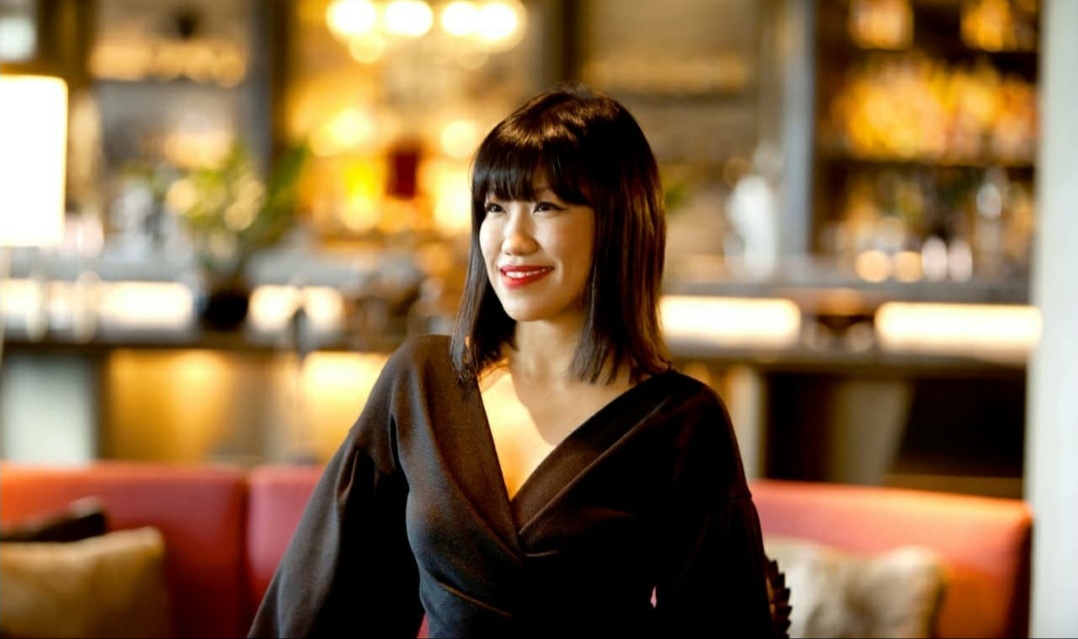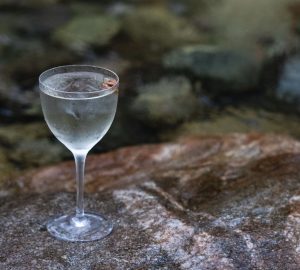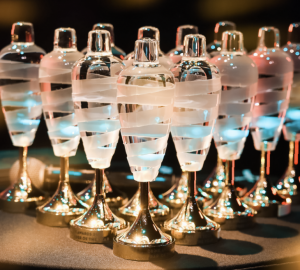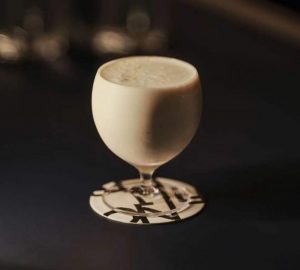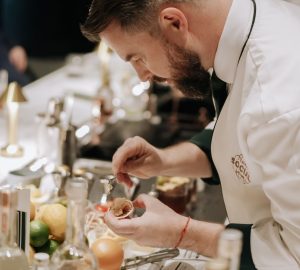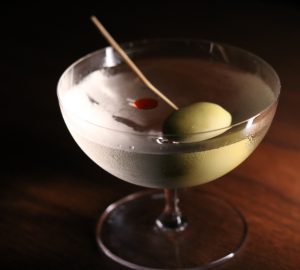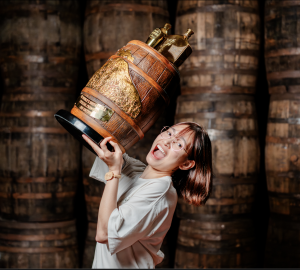Singapore industry veteran Rachel Ling shares her journey from a career in vodka to a deep dive into sobriety. By Holly Graham.
Drink, eat, sleep, repeat
Rachel Ling was the ultimate party girl. A love for house music drew her to a career in nightlife and starting her own event company in her native Singapore. Stolichnaya Elit approached her to launch the premium vodka in the market, which led to her being offered a job as brand manager in 2013, and eventually the regional brand ambassador for APAC.
For Rachel, this meant five years of vodka, travel and hangovers. “There was a lot of drinking. It’s hard to remember dates of things that happened as it was a constant cycle of traveling, getting inebriated and being hungover. It was also gratifying in many ways – I got to see the world and forge friendships. My job was to go out and drink – the dream!”
Of course, Rachel took her job seriously and was careful, aware she was representing a huge brand. “I still had to be corporate, composed and sometimes work under the influence of alcohol, but I did everything required of me – didn’t slack off because I was hungover. I was working, drinking and going at it full steam, and no one ever told me to stop or take it easy.”
Rachel admits she lived by the belief if she stayed drunk, she wouldn’t get a hangover. “Looking back, that’s absolutely terrifying. I don’t know how I managed that cycle.” Asked frankly if she ever suspected she might be an alcoholic, she replied: “At some points, I had to test myself to make sure I wasn’t addicted, so I would take small breaks and see if I was craving alcohol. Thankfully I didn’t and survived without it.”
Consistent fitness became hard with hangovers, not to mention life on the road and lacking control over her diet. “I feel like a lot of the time in the alcohol industry, we take it as our job to drink as much as we can, rather than as a lifestyle choice as non-industry folks do”.
Rachel admits that eventually it began to affect her physically. “It became hard to shed the weight that I had put on and I would often feel bloated and uncomfortable. If you don’t feel great physically you don’t feel great mentally. I also started to get eczema – which I’d never had before – and it affected my self-esteem. It’s so easy to ignore these things when you’re having fun. But having fun becomes the excuse to ignore these problems.”
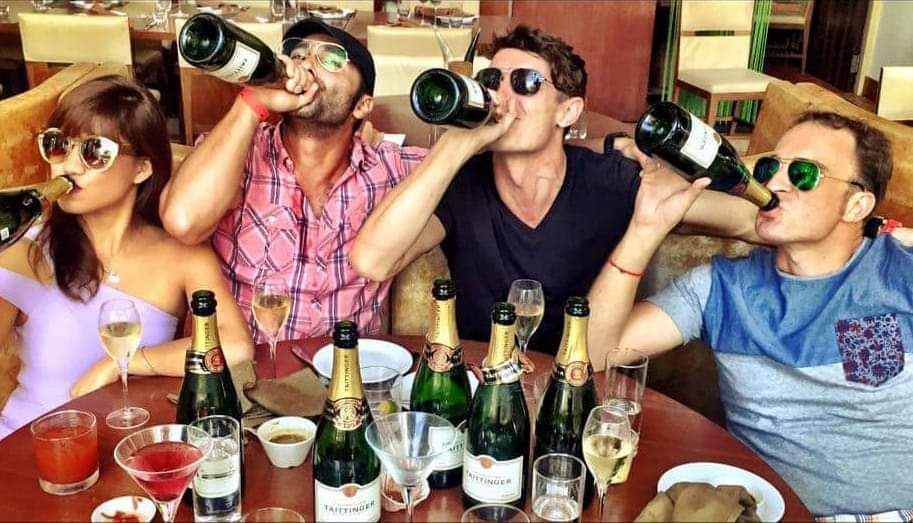
2017 was Rachel’s final year at Stolichnaya, and she found herself drained and coming to terms with the fact she felt a little depressed – something she suspected she had been battling before, but was numbing it with alcohol. “I needed to stop the constant drinking. I wanted more balance and to feel human. I wasn’t in touch with myself. On the outside I could empathise and socialise, but when it came to my own self, I didn’t know who I was. I felt lost and knew something wasn’t right and that I needed to fix it.”
Time for change
Rachel went on to join Proof & Company as senior client manager, where she says she really began to tone down her drinking and focus on her health and fitness. “My life revolves around my job, so I knew to perform at my best, I had to be mentally fit. In order to be mentally fit, I had to be physically fit. I began working out a few times a day, six days a week, even when I was hungover. Looking back it was a bit obsessional but I was the fittest I’d ever been.” It was at this point Rachel began to be very specific with how and when she drank.
In the summer of 2020, Rachel joined non-alcoholic brand Lyre’s, where she is now the regional Asia manager, and it goes without saying that working in the non-alcoholic category helped her journey into sobriety. She had initially planned to do Dry January, citing that while her work is related, she wanted to show to herself and others it was possible.
The first week was toughest, but after the four weeks were up, Rachel found herself asking if she actually wanted to drink again. “I realised that I didn’t feel the need to drink, so I decided to do 100 days, which turned into six months. I’m always curious about new experiences and wanted to explore sobriety more to see if it would significantly change my health and what other impacts it would have.”
Stages of sobriety
Driven by curiosity, willpower and determination, Rachel says after that first month, she stopped tracking, and avoided bars for a while. “I knew there would be pressure from the bar industry. So at the beginning, I held back on going to bars and used social media to lay the foundations that I was not drinking, but still wanted to go out.”
“Bartenders wouldn’t question a customer, so why question someone in the industry? It’s my challenge – to be present and sober”
Some bars knew, some didn’t. An awkward moment was when a bartender asked Rachel what was the point of her being at the bar if she wasn’t drinking. “I explained that I still wanted to enjoy their venue and the environment, and pointed out that they wouldn’t question a customer, so why question someone in the industry? It’s my challenge – to be present and sober.”
The constant questioning of Rachel’s choice to be sober was tedious at first. “Everyone knows I drank a lot in the past. I was just trying to be mindful of my health. Then I started to put myself in their shoes, and realised it was a legitimate question for someone who’s not used to seeing you not drink. That said, why don’t people ask drinkers why they are drinking?”
Rachel noted that things changed fairly quickly and now when she’s at a bar, she’s respectfully asked if she’s drinking or not. It’s an incredibly valid question, especially as in bars we are offered a variety of other choices such as still or sparkling water, bar or table, sweet or sour.
Rachel says those sober six months were the most consistently productive time of her life, with no low points at all. “On weekends I wasn’t bored, I was happy chilling, going for walks, being productive at home, working on personal development and catching up with friends during the day. At times, I had FOMO but it didn’t bother me too much, as mentally I was so stable and focused on my goals.”
A positive change that Rachel noticed is that her sobriety had influenced some friends and industry folks. They had quietly taken on their own periods of abstaining from alcohol because they needed a break, but didn’t have the willpower to start before. “We always have an excuse for why we can’t go off booze.” says Rachel, “but I hope health is a big enough reason. When people saw how I had continued, they decided to embark on their own journeys and would send me messages to say they’d reached 30 days or 50 days and that I’d inspired them.”
She says all it took for her fellow industry pals was inspiration, encouragement and seeing how someone who used to drink their own bodyweight could actually completely stop drinking for six months while being in the industry. “It was great to see and it motivated me even more to be their pillar of support.”
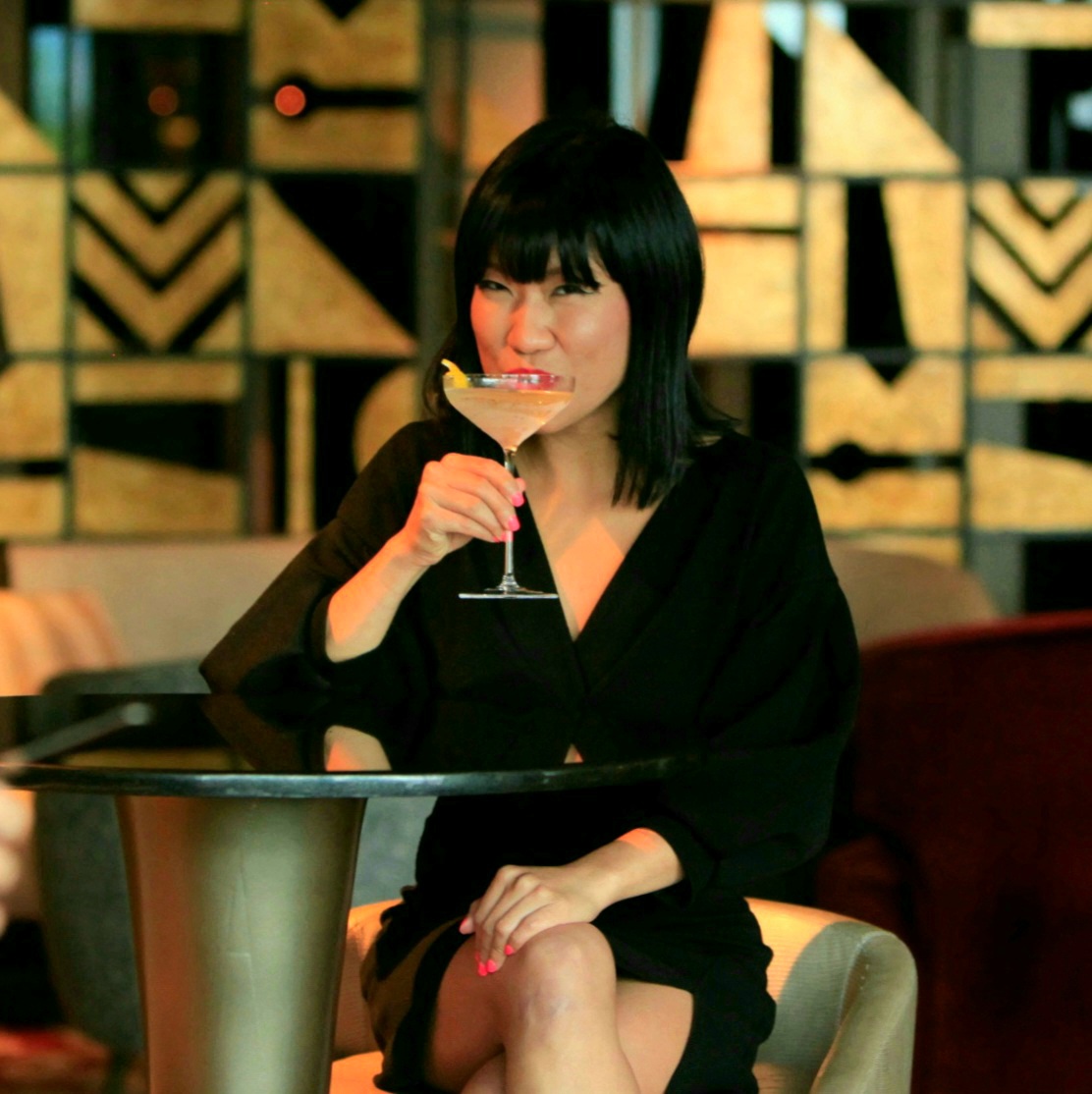
Back to booze
June 30 marked the end of Rachel’s six months, however she wanted to do Dry July, so just allowed herself that evening to drink with a friend. “I imagined the first drink would get me drunk, but I still had a good tolerance and mixed wine and cocktails. But when I got home I felt down.”
Something Rachel admits she struggled with when drinking in the past was feelings of depression at the end of a night on the sauce. “I tried to analyse myself but couldn’t figure out why I was feeling that way.”
After Dry July, Rachel began drinking with friends and family, easing herself in. “It was daunting, at first. It felt like I’d never drank before! So I started by drinking slowly, and therefore less, but it wasn’t long before I was back to my former drinking stamina.”
She now keeps track of how she feels when drinking and how it affects her. “Every time I drink, I feel highs at the start and lows at the end of the night. I am not depressed, I know that because I am totally fine the next day, and it doesn’t affect me when I’m sober.” However, it goes without saying that alcohol is a depressant and affects the brain’s ability to regulate mood.
Rachel admits she still has to mentally prepare for months like Dry January and Sober October: “I want to do it as I’m so committed to myself and my job, but I put a lot of pressure on myself. That said, how can I expect people to join me if I don’t do it myself? I believe if you’re going to talk the talk, you’ve got to walk the walk!”
Sobriety and socialising
Drinking – especially in our industry – is such a social activity, and we’re very conditioned to the camaraderie of it all. Part of Rachel’s strategy is to normalise drinking with those who aren’t. “The sober person doesn’t have a problem abstaining – it’s usually the people who are drinking who have the problem with their sober companion. I always remind people that.”
“It’s almost like you’re uninviting yourself and asking for permission to stay sober, and inviting them to ask questions as to why”
Rachel admits she used to struggle with the obligation to drink, especially at events and says her top piece of advice is to not tell anyone beforehand that you’re not drinking. “It’s almost like you’re uninviting yourself and asking for permission to stay sober, and inviting them to ask questions as to why. Now, I just show up and if no one notices, great. If someone asks why I’m not drinking, I just explain that I’m on a health kick but still want to be there and support.”
Rachel says while she would never tell anyone to stop drinking, her message is to be more conscious and mindful. “Your body will tell you when you need a break, so take it seriously. I don’t regret my past but I regret not taking better care of my body, which I thought was invincible.”
So if sobriety is so great, why does Rachel go back to booze? “Frankly, I enjoy the highs of drinking. Straight up, I’m being honest when I say it’s fun for me! I’m not ready, nor do I currently want to go completely sober forever but I’m definitely better at listening to my body and pausing when I need to.”
Her advice to those looking to dabble in sobriety is to be mentally prepared and understand where your head is at. “Find what makes you uncomfortable first. For example, if going to bars and not drinking makes you uncomfortable, cut that out for the time being until you understand why or have the courage to abstain and manage being sober in a drinking environment. It takes time and willpower to adapt.”
She also says that you may start to constantly evaluate yourself because you’re sober and not drowning out your thoughts, and certain things become clear at different stages. This can mean you’ll begin to feel equipped to face uncomfortable questions. “When you’re sober for so long, you take such a hard look at yourself. I started to discover lots about myself that I never knew. It’s enlightening, eye opening and very empowering. You are stronger than you think.”
We – as members of this incredible industry – do put a lot of expectations on ourselves and others to drink. If we could just drop that expectation it could be a huge step in a more mindful direction for us all as a community.


